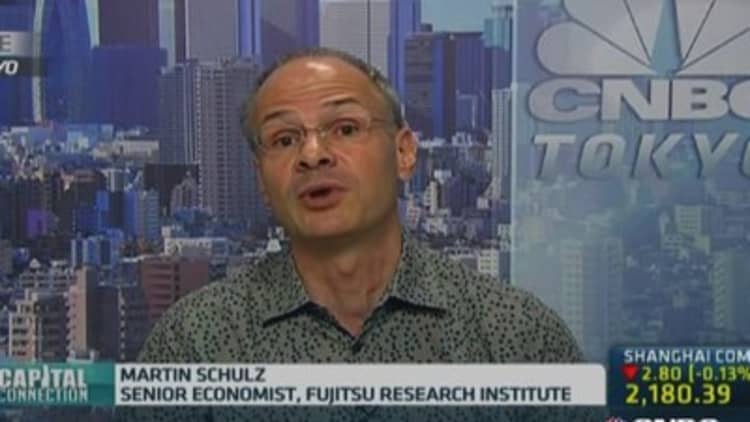
Japan's June industrial output fell at the fastest rate since the devastating earthquake and tsunami in March 2011 as companies slowed production to offset a build-up in inventories, official data showed on Wednesday, clouding the outlook for the economy.
Manufacturers expect output to rebound in the coming two months as the pain from a sales tax hike in April fades, although soft exports may mean any any rebound will be modest.
The 3.3 percent month-on-month drop far exceeded the median 1.2 percent fall forecast in a Reuters poll of economists, and followed a 0.7 percent increase in May, data by the Ministry of Economy, Trade and Industry showed.
It was the biggest fall since March 2011, when the earthquake took a heavy toll on factory lines and disrupted supply chains.
The ministry cut its assessment of output, saying it has "weakened."
The output data suggests the economy may struggle to rebound in the current quarter following an expected contraction in the second quarter due to the April 1 sales tax increase, which could deepen policymakers' fears for the outlook.
Read MoreWhy this Japan earnings season is important
"The pent-up demand ahead of the sales tax hike was bigger than expected so the consequent downturn is pretty steep, which is probably why output fell so much in June," said Junko Nishioka, chief Japan economist at RBS Securities.
"We don't expect output to keep falling in the current quarter as the tax hike effect is fading," she said. "Still, the slow pace of recovery in exports may weigh on output."
Manufacturers surveyed by the ministry expect output to rise 2.5 percent in July and increase 1.1 percent in August.

The government raised the national sales tax to 8 percent from 5 percent on April 1 to meet rising welfare costs, which caused consumer spending to decline temporarily.
Manufacturers have reduced production after the tax hike, but inventories have been increasing.
Read MoreJapan's labor demand, household spend improve in June
Analysts expect the economy to contract in the second quarter after the increase in the sales tax, with a Reuters poll conducted in July projecting a 1.4 percent quarterly drop.
The economy is expected to grow 0.6 percent in the current quarter, however, as consumer spending recovers from the tax hike and the government stimulus spending supports domestic demand.

